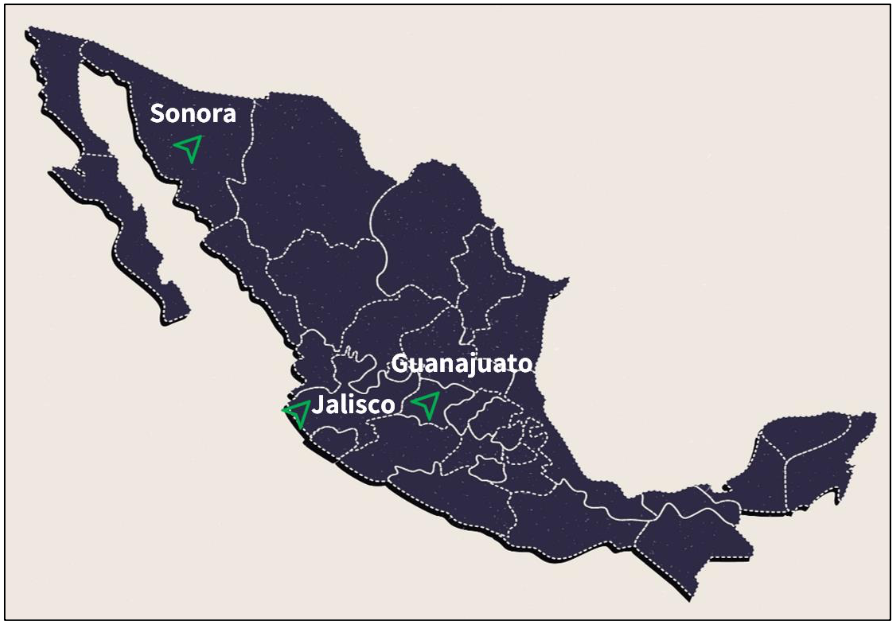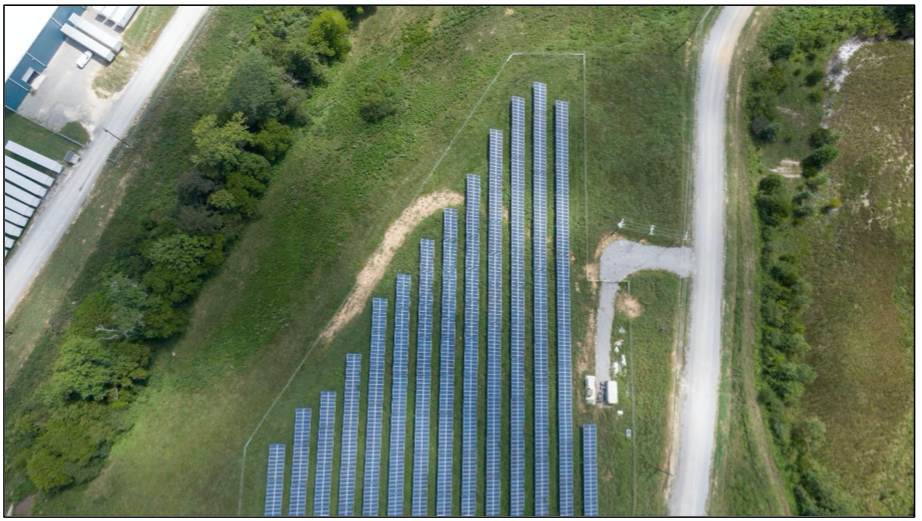Location: Sonora, Jalisco & Guanajuato, México.
Case study conducted by: PhD. Carlos Navarrete Ulloa, PhD. Marco Berger García, PhD. Dainel Robles Torres, BA Alvaro Guevara Castillo.
Timespan: 2022 – present day.
Partners: Iniciativa Climática de México (civil society), Clúster de Energía Sonora (civil society), Government of the State of Sonora and Municipality of Hermosillo, Sonora, Government of the State of Jalisco, Government of the State of Guanajuato, citizens of rural communities and their Ejido Assemblies, British Embassy in Mexico City/UK PACT Country Programme.
Relevant SDGs: SDG 7 Affordable and clean energy,SDG 11 Sustainable Cities and Communities, SDG 12 Responsible Consumption and Production,SDG 13 Climate Action, SDG 17 Partnerships for the goals.


‘Ejido Solar’ it’s a civil society initiative focused on community distributed energy generation, as an option to mitigate climate change challenges. It aims to foster economic and social development through the implementation of renewable energy solar technologies that benefits local communities and their ejidos.
In México, ejidos are defined as communal lands mainly in rural territories, used for agriculture and farming activities and goods, community members usufruct designated plots at the same time collectively maintaining communal holdings over the land, along with communal assemblies legally constituted and local, state, and federal government oversight.
Over these communal lands some areas do not have specific usufruct to produce goods, making them attractive to implementation of communitarian projects, in this case, solar panels for photovoltaic production that can be leveraged for the daily activities of families, productive activities in the countryside such as livestock or food harvesting, as well as being suppliers of the established energy network.
National sustainability and climate change legislation has been relevant, especially as it offered formal ground to civil society actors, for instance Iniciativa Climática de México, to create projects such as ‘Ejido Solar’.
Currently ‘Ejido Solar’ shows two phases, the project design phase and the implementation phase. In the states of Jalisco and Guanajuato, the initial phase of the project advanced with two pilot cases, while the state of Sonora it’s has been deploying the implementation phase during 2023. To date, 4 photovoltaic production plants have been enabled in Sonora, while the goal for the following years is a network of 40 plants in various ejidos distributed throughout the state.
In its project phase, the design of ‘Ejido Solar’ contemplates a governance model with economic development schemes with benefits derived from the management of energy as a common resource. The ejidos and agrarian communities as owners of photovoltaic solar projects for distributed generation participate in its operation and maintenance.
The model integrates various relevant and affected actors, seeking to share the benefits of income from energy sales, decision making and blended financing. For example, agrarian communities may be energy suppliers to the established energy network through collaboration with a company dedicated to marketing, distribution, or supply of electrical energy.
Nonetheless, implementation phase arises significant challenges around these issues. More significantly in the state of Sonora, local government is open to collaborate with agrarian ejidos and their communities, civil society initiators and mediators, and international cooperation organizations.
In achieving the operation of the project many issues regarding ownership, decision making, communication and accountability, and financial schemes for implementation and economic sustainability, faces modifications or alternative paths, making each ejido a quasi-case in which the network of actors behaves. Issues related to the construction of trust, the distribution of leadership, top-down and bottom-up communication, becomes significant for ‘Ejido Solar’ to move from paper to operational concreteness, since agrarian communities face strong problems linked to the most basic needs.
The case study research team is conducting mostly online interviews with stakeholders from the three Mexican states, those in which ‘Ejido Solar’ remains in a project phase as well as in Sonora, where photovoltaic parcels have started up. We recognize the interesting challenges for local actors and adaptability demands that trigger and maintain collaboration, as well as the conditions that stop or hinder project implementation.
In GOGREEN, we define the green SDGs as the following SDGs: SDG 6, SDG 7, SDG 11, SDG 12, SDG 13, SDG 14, SDG 15
This website uses strictly-necessary cookies. To read more about WordPress cookies, click here. Please click on the ‘Accept’ button to continue on to the GOGREEN Project site.